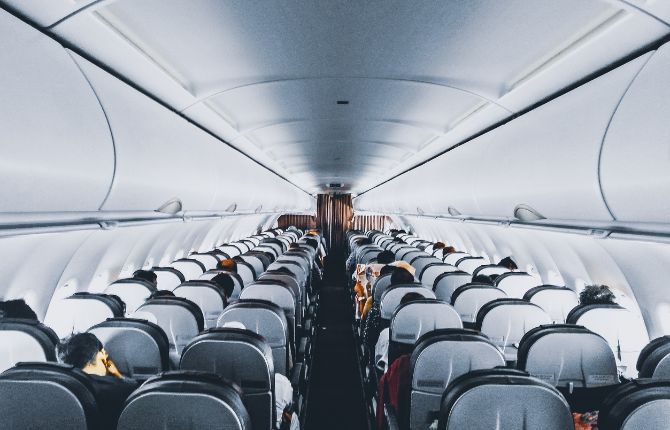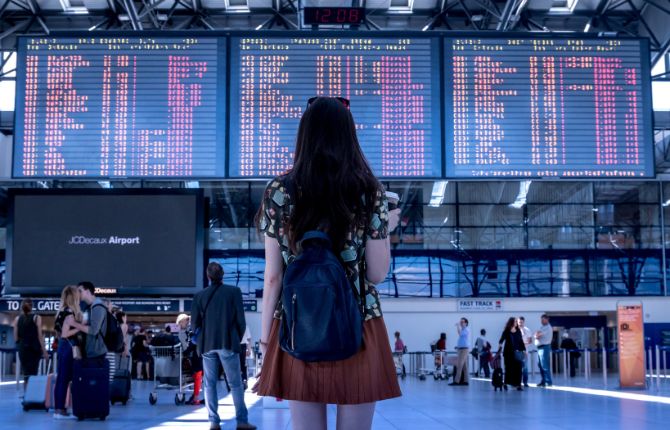Your first international flight can be both exciting and overwhelming. With so many details to consider, it’s essential to prepare adequately to ensure your journey goes smoothly. From booking your flight to navigating customs at your destination, this guide will provide you with all the necessary first international flight tips to make your adventure a success.
First International Flight Tips
1. Before You Book Your International Flight
Researching Your Destination
The first step in preparing for your international trip is researching your destination. Understanding the culture, climate, and local customs can help you pack appropriately and plan activities. Research the best times to visit, local holidays, and any travel advisories that may be in place.
Choosing the Right Flight
Selecting the right flight is crucial. Consider factors such as flight duration, layovers, and airlines’ reputations. Look for flights that offer a balance between cost and comfort, especially if it’s a long-haul journey.
Understanding Visa and Passport Requirements
Ensure your passport is up-to-date and meets the entry requirements for your destination. Certain countries mandate that your passport must be valid for a minimum of six months beyond your travel dates. Additionally, research whether you need a visa and how to obtain it well in advance of your trip.
2. Booking Your First Flight: First International Flight Tips
Tips for Finding the Best Deals
Flight prices can vary significantly depending on when and where you book. Use flight comparison websites and consider booking during off-peak times for the best deals. Don’t forget to check for hidden fees, such as baggage charges, when comparing prices.
The Importance of Travel Insurance
Travel insurance is a must for international trips. It can provide coverage for unforeseen situations like medical emergencies, trip cancellations, or lost luggage. Make sure your policy covers the specific needs of your trip.
Selecting Your Seat: Comfort vs. Cost
Choosing the right seat can make a big difference, especially on long flights. While window seats offer great views, aisle seats provide more mobility. Consider paying a little extra for seats with more legroom if you need to stay comfortable during a long flight.
3. Packing for Your Journey
Creating a Packing Checklist
A well-thought-out packing checklist can save you from last-minute stress. List everything you need, from clothing to toiletries, and check off items as you pack. Remember to account for the weather at your destination and the length of your stay.
What to Pack in Your Carry-On
Your carry-on should include essentials like travel documents, medications, a change of clothes, and electronic devices. Also, pack snacks and a reusable water bottle to stay hydrated during the flight.
Understanding Baggage Allowances and Restrictions
Different airlines have different baggage policies, so check these before you pack. Be aware of weight limits and size restrictions to avoid extra fees. Additionally, know what items are prohibited in your carry-on and checked luggage.
4. Documents and Paperwork
Organizing Important Documents
Keep all your essential documents, such as your passport, visa, boarding passes, and travel insurance, in a dedicated travel wallet. This will help you stay organized and make it easier to access them when needed.
The Role of Travel Apps in Keeping Track
Travel apps can be lifesavers when it comes to organizing your trip. Use apps to store digital copies of your documents, manage your itinerary, and receive real-time flight updates.
Making Copies of Essential Documents
Make copies of your passport, visa, and travel insurance documents. Keep one set in your luggage and another with a trusted friend or family member. Digital copies stored securely in the cloud are also a good idea.
5. Preparing for the Airport: First International Flight Tips
Arriving Early: Why It’s Crucial
For international flights, it’s advisable to arrive at the airport a minimum of three hours before departure. This allows enough time to check in, pass through security, and deal with any unexpected issues.
Navigating Security Checks
Security checks can cause stress for many travelers. To speed up the process, have your documents ready, and be aware of the items that need to be removed from your bags, such as laptops and liquids.
Tips for a Smooth Check-In Process
Completing your check-in online before arriving at the airport can save you time.. At the airport, use self-service kiosks to print your boarding pass and drop off your luggage.
6. Understanding Customs and Immigration
What to Expect at Customs
Upon arrival at your destination, you’ll need to pass through customs. Be prepared to declare any items you’re bringing into the country and answer questions about your trip. Always be honest and straightforward with customs officers.
Filling Out Immigration Forms
Some countries require you to fill out an immigration form before entry. Have a pen handy, and ensure you know your accommodation details, as you’ll likely need to provide this information.
Tips for a Smooth Immigration Experience
Remain calm and polite when dealing with immigration officers. Have all your documents ready and be prepared to answer questions about your stay. Knowing a few basic phrases in the local language can also be helpful.
7. On-Board Tips: First International Flight Tips
Staying Comfortable During the Flight
Long flights can be tiring, so comfort is key. Wear loose, comfortable clothing and consider bringing a neck pillow and eye mask. Staying hydrated and stretching periodically can help prevent discomfort.
Managing Jet Lag: Tips and Tricks
Jet lag is a common issue when traveling across time zones. To minimize its effects, try to adjust your sleep schedule a few days before your flight. Stay hydrated during the flight and avoid alcohol and caffeine.
Entertainment Options and How to Stay Occupied
Bring a variety of entertainment options, such as books, movies, and music, to keep yourself occupied during the flight. Many airlines also offer in-flight entertainment, so check what’s available on your flight.
8. Arrival at Your Destination
Collecting Your Baggage
After landing, head to the baggage claim area to collect your luggage. Keep an eye on the screens to find your carousel, and double-check that you have the correct bags before leaving the airport.
Currency Exchange: Getting Local Currency
It’s a good idea to exchange some money for local currency before leaving the airport. While ATMs are widely available, having cash on hand can be helpful for immediate expenses like transportation or tips.
Navigating Your Way to the Hotel
Before you arrive, research your transportation options from the airport to your hotel. Whether you’re taking a taxi, shuttle, or public transport, knowing the best route can save you time and stress.
9. Health and Safety Tips
Staying Healthy During Your Trip
Maintaining your health while traveling is crucial. Drink plenty of water, eat balanced meals, and get enough rest. If you’re traveling to a destination with health risks, consider getting the necessary vaccinations and medications before you go.
Safety Precautions While Traveling
Safety should always be a priority. Stay mindful of your surroundings, steer clear of risky areas, and keep your valuables safe. It’s also wise to have a plan in place for emergencies, such as knowing the location of the nearest hospital or embassy.
Emergency Contacts and Local Services
Familiarize yourself with local emergency numbers and services. Keep a list of important contacts, including your country’s embassy, local hospitals, and your travel insurance provider.
10. Cultural Considerations
Understanding Local Customs and Etiquette
Respecting local customs and etiquette is essential when traveling abroad. Research the cultural norms of your destination, such as appropriate dress, tipping practices, and social behaviors, to avoid offending locals.
Language Barriers and How to Overcome Them
Language barriers can be challenging, but they don’t have to ruin your trip. Familiarize yourself with a few basic phrases in the local language and use translation apps to assist with communication. Being patient and polite will go a long way.
Tips for Respectful Travel
When traveling internationally, it’s important to be a respectful guest. Show appreciation for the local culture, support local businesses, and be mindful of your environmental impact.
11. Money Management
Managing Your Budget
Budgeting is crucial for a successful trip. Track your expenses, prioritize essential spending, and leave room for unexpected costs. Consider using a travel credit card that offers rewards or cashback on international purchases.
Using Credit Cards and Cash Abroad
Using credit cards abroad can be convenient but ensure your card doesn’t charge foreign transaction fees. Carry some cash for small purchases, and always be cautious when using ATMs to avoid scams.
Avoiding Common Financial Pitfalls
Common financial pitfalls include overspending, currency exchange fees, and fraud. To avoid these, set a daily spending limit, use reputable exchange services, and monitor your bank statements regularly.
12. Technology and Connectivity
Staying Connected: SIM Cards vs. Roaming
Staying connected while abroad is essential for navigating and staying in touch. Consider buying a local SIM card or an international data plan to avoid high roaming charges.
Essential Travel Apps to Download
Download travel apps that can enhance your trip, such as maps, language translators, and currency converters. Apps like Google Maps and Uber can make getting around easier, while apps like Duolingo can help with language learning.
Keeping Your Devices Charged
Don’t forget to bring a universal power adapter for your devices. Pack a portable charger for long days out and be mindful of voltage differences to avoid damaging your electronics.
13. Dealing with Travel Delays and Cancellations
Understanding Your Rights as a Passenger
Understand your rights in the event of flight delays or cancellations. Airlines are often required to compensate passengers for significant delays or cancellations, so familiarize yourself with the rules.
How to Handle Delayed or Canceled Flights
If your flight is delayed or canceled, stay calm and contact the airline immediately. They can often rebook you on the next available flight or provide compensation. Keep all your receipts for any expenses incurred due to the delay.
Tips for Rebooking and Compensation
When rebooking, consider alternative routes or airlines to reach your destination sooner. If you’re eligible for compensation, file a claim with the airline promptly. Travel insurance can also cover additional expenses.
Conclusion
Your first international flight is an exciting milestone. By following these first international flight tips, you can ensure a smooth and enjoyable journey. Remember to prepare thoroughly, stay organized, and embrace the adventure that awaits you.
FAQs
What is the best time to book an international flight?
The best time to book an international flight is typically 2-3 months in advance for the best deals.
How early should I arrive at the airport for an international flight?
It’s recommended to arrive at least three hours before your flight to account for check-in, security, and any unforeseen delays.
What should I do if I lose my passport abroad?
If you lose your passport, contact your country’s embassy or consulate immediately for assistance in obtaining a replacement.
How can I avoid jet lag on long international flights?
To avoid jet lag, try adjusting your sleep schedule before your flight, stay hydrated, and expose yourself to natural light upon arrival.
What are some common mistakes to avoid on my first international trip?
Common mistakes include overpacking, not checking visa requirements, and neglecting travel insurance. Preparation is key to avoiding these pitfalls.










